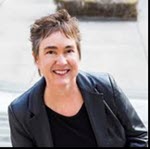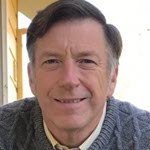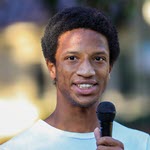
 (Editor’s note: this is the third of six candidate surveys of the Davis City Council, Yolo Supervisor, and Woodland Council Candidates).
(Editor’s note: this is the third of six candidate surveys of the Davis City Council, Yolo Supervisor, and Woodland Council Candidates).
Yolo People Power 2020 Candidate Survey
Yolo People Power is a county-wide network of residents working toward criminal justice reform. To better understand the level of commitment of current candidates for city councils and the Yolo Board of Supervisors races, Yolo People Power invited all candidates to respond to a six-question survey. These were reviewed and scored independently by reviewers from Winters, West Sacramento, Davis, Woodland and UC Davis.
Yolo People Power appreciates the 14 candidates who thoughtfully responded to our questionnaire. These included the following: Supervisor Jim Provenza and Linda Deos; Woodland Mayor Pro Tempore Tom Stallard and candidates Karen Bayne and Victoria Fernandez; and Davis Vice-Mayor Lucas Frerichs, Councilmember Will Arnold, Josh Chapman, Kelsey Fortune, Connor Gorman, Larry Guenther, Dillan Horton, Rochelle Swanson, and Colin Walsh. Their willingness to put their thoughts to paper and to respond to a community group demonstrates a level of responsiveness to community concerns which we  commend.
commend.
The high scorers demonstrated complete answers and awareness of impacted populations. They provided examples of previous reform efforts, offered specific ideas they would support going forward and demonstrated a commitment to civic engagement, particularly with the most impacted populations. A perfect score would be a “4”.
Yolo People Power (YPP) founded in January 2017, was originally focused on policing in Davis. The group soon expanded its scope to all of Yolo County and now has active members from all Yolo municipalities. The group supports policies and programs which prevent crime, assist those in crisis, treat all people with dignity and prepare inmates to reintegrate into communities. Hoang-Van Nguyen of the West Sacramento chapter explains “We recognize systemic and institutional racism and call upon our local governments to undertake the difficult work of transforming public safety from a policing and punitive approach to a public safety model.”
To receive a PDF of all the completed answers, please email YoloPeoplePower@gmail.com. To learn more about Yolo People Power, visit https://www.facebook.com/Yolo-People-Power-104100361133412
Question 5. Do you believe the public needs to be engaged? If so, how do you ensure that the public will be engaged throughout the reform process?
BOARD OF SUPERVISORS
 Linda Deos
Linda Deos
Democracy literally means government by the people. I am being elected to serve, but I absolutely believe that the public should be robustly engaged in the process of determining how we are policed and the types of services that they want us to provide.
 Supervisor Jim Provenza
Supervisor Jim Provenza
I have proposed that there be a citizens advisory board created to advise the county on criminal justice issues. Without public engagement, we a likely to miss important issues. The Board can be advisory to both the Community Corrections Program (CCP) Board and the Board of Supervisors. If the CCP board fails to act on my proposal, I will take this issue to the Board of Supervisors.
Davis City Council Candidates
 Council Member Will Arnold
Council Member Will Arnold
The public needs to be engaged, and in many important ways it already is. The City Council has tasked the Police Accountability, Human Relations and Social Services commissions to work together in bringing us proposal for how we address our public safety system. The work of the join-subcommittee of these three bodies is also under way. The Police Department strategic plan is also in development and will include significant community engagement.
bringing us proposal for how we address our public safety system. The work of the join-subcommittee of these three bodies is also under way. The Police Department strategic plan is also in development and will include significant community engagement.
 Josh Chapman
Josh Chapman
Absolutely, the public must be engaged, not only in policy making but also in oversight of law enforcement, from DAY ONE. An active citizenry must hold law enforcement officials accountable to the community they are sworn to protect. Community support and input is the foundation of successful reform and I will work diligently to appoint community members with diverse backgrounds to any commission or oversight committee that is created. As a member of City Council, I pledge that all communities who have traditionally been underrepresented will participate not only in policy making but also in direct oversight of the police department. I am running for City Council in South Davis, one of the most diverse and underrepresented communities in our town, and it’s time for the South Davis community, and the larger Davis community, to have their voices heard.
 Kelsey Fortune
Kelsey Fortune
Yes. Public engagement is necessary to make the system work the best it can. We all have blind spots when it comes to what the community needs, and we must come together so we don’t end up with a system that only serves a portion of us as is currently the case. I would formalize a commission on Public Safety and a commission on Equity, Inclusion, and Diversity. I would ensure frequent reporting on Council considerations and our reasoning in regard to public safety and all topics for that matter in the form of community briefs. I believe these lines of communication are currently one sided and broken. We need to know that council is listening to the public and to know how they are coming to their decisions.
 Council Member Lucas Frerichs
Council Member Lucas Frerichs
Absolutely! In Davis, there are ample opportunities to provide input. We made every effort at engaging the public during previous efforts at police reform & the process to create the Police Accountability Commission. Now that the PAC is up and running, many people regularly participate in PAC and Council meetings. We heard recent calls from community members to defund the police, and while we are having several commissions (&Yolo County) provide the Council some possible recommendations & next steps, we have seen a large amount of public input during that process, as well. (We may need some consulting help to provide options, too.) There is more work to do, as we consider how to strategically invest our resources into increased mental health assistance and social services programming. We’ll continue work with community partners, such as Yolo People Power, on these efforts. In 2021, there will be need for public engagement as the Davis Police Department will be initiating a renewal of its three-year strategic plan. Chief Pytel is developing a plan for broad community engagement involving the general public, students, city commissions and more, and I urge you to participate!
 Connor Gorman
Connor Gorman
Definitely. As noted above, there should be plenty of meetings and events where the public is able to provide input and the City Council and staff should be prepared to take this into account and make changes where necessary. Along with this, people and communities that are the most targeted by policing and/or the most likely to receive services from a Public Safety department should have their feedback weighed more heavily than feedback from those with relative privilege. We must always center the needs of marginalized communities and make sure social service programs are working for those they are designed to serve. On top of this, the city should actively seek out feedback from these communities rather than putting the burden on them to come out to pre-scheduled events.
 Larry Guenther
Larry Guenther
Absolutely. As a member of the Downtown Plan Committee, I believe the process of creating that plan showed robust and effective community engagement. Actively getting people engaged takes work, but that work pays huge dividends in the final product. The best way to get community buy-in is to have the community create the plan in the first place. This is where the opportunity for true innovation exists. Innovation in any endeavor comes from enthusiastic engagement from all stakeholders. Charrettes – multiday interactive design workshops – are an excellent method for getting all ideas on the table and making those ideas work. Being cognizant of different lifestyles and creating opportunities for every group to participate is key to getting broad community participation. Surveys, small workshops in each community and neighborhood, and city-wide events all have their place in this process. Our entire community must be satisfied with the results for this process to be deemed successful. And we must remember that our community includes UC Davis; students, staff, and faculty. Innovation breathes with support from leadership. Our leaders must be committed to realizing this change.
 Dillan Horton
Dillan Horton
Yes absolutely, only with the public’s participation and consent can this be successful. The institution of district elections can give us an idea of what can happen if there is a significant change without public support. Councilmembers have a lot of unacknowledged power to keep the public informed on their own initiative. If elected I plan to regularly update residents on the progress, particularly so they know when the council might be straying from its public mandate to structurally reform the police  department.
department.
 Rochelle Swanson
Rochelle Swanson
Without question the public must be included in the reforms and the reviews. There should be a Blue Ribbon Committee (BRC) made up of two appointees per council member (one district community member and one member with relevant professional training), Yolo Health and Human Services Director, Police Chief, Fire Chief, Mutual Housing Executive Director, City Manager, Police Accountability Commissioner, Social Services Commissioner, Chiefs Advisory Board member, ASUCD President/designee, DJSUD representative, and a NAMI Board member. These meetings will be open to the public. Notices for the BRC will be posted on the city’s website, an opt-in mailing list, local media outlets, notice board at City Hall, and the city services bill insert and the city council’s regular agendas. A hallmark of the duties is to engage community members not regularly engaged in our local politics both between and during standard calendared meetings. Meetings times and locations will vary to accommodate participation by people of all walks of life. The chair of the BRC will report out progress quarterly to the City Council at the beginning of a regularly scheduled meeting.
 Colin Walsh
Colin Walsh
Yes, Absolutely. The Commission system is a good place for public engagement, and Police Accountability, Social Services, and Human Relations Commissions should all be a part of a multi-phased, negotiated and agreed-upon reform process – but the opportunities to engage need to go beyond a 2 or 3 minute public comment session. The city commissions can serve as hubs for engagement, both through their regular meetings and through special gatherings designed to solicit community input. This has been done for other issues (e.g., forums on the use of open space, forums on the use of pesticides) and it would work well here. I would like to see charrette type meetings, surveys, and outreach to affected populations. The commissions have the relevant expertise to guide the discussion and it is their purview to solicit and report on community input.
West Sacramento Mayor and City Council Candidates
None of the 7 candidates from West Sacramento responded the survey invitation.
Winters City Council Candidates
Winters is not electing City Council members this November.
Woodland City Council Candidates
 Karen Rosenkilde-Bayne
Karen Rosenkilde-Bayne
My platform has an entire section on “Community Engagement.” Woodland needs a commission for this as well. Community engagement is essential! On my platform, I wrote, “If running for or serving on a city council had a final exam, it would be called “Community Engagement” because it encompasses all of the other policy areas. The public must drive whatever government does if it is to work. When there is community engagement, there is typically buy-in, and a leader who is a good facilitator can help the public to define their own goals, based on the needs they create. For such collaborations to work, the community must have great trust in its leaders. Town halls, focus groups, one on one discussions, and similar types of meetings can provide good information. A survey can yield some valuable information, but a survey isn’t a dialogue, so it doesn’t build community like the other types of information-gathering methods. Therefore, the other methods are preferred. Continual outreach and check-ins must occur to ensure that the community remains engaged and trust levels stay high, and if the levels drop, adjustments must be made immediately.
 Victoria Fernandez
Victoria Fernandez
Most definitely, public input and support are crucial to it’s effectiveness. I believe an oversight committee should present quarterly informational/town hall meetings. The City Council rep. or Oversight Chairperson should provide a monthly report to the Council. Social media and public outreach should be encouraged.
 Vice Mayor Tom Stallard
Vice Mayor Tom Stallard
Woodland Police Department regularly reaches out to engage the public through programs like “Coffee with a Cop”, the annual operation of a citizen’s academy, ride-alongs, Police Athletic League, Police Cadets and more. We also have around 40 Police volunteers including a group of chaplains that work daily with the department. I also championed the re-activation of the reserve program using materials I obtained from the Rocklin Police Department. I appreciate Chief Kaff’s efforts to work with the community because he and his command staff genuinely want to work with the public. I’m looking forward to his first public conversation via Zoom, scheduled for September 8.
People Power groups were formed across the country in January of 2017 in response to a call from the National ACLU to meet with local police to understand the degree of collaboration between ICE and local law enforcement. The current coordinating council includes Hoang-Van Nguyen of West Sacramento and Nora Olwin and Francesca Wright of Davis.
Support our work – to become a sustaining at $5 – $10- $25 per month hit the link:
